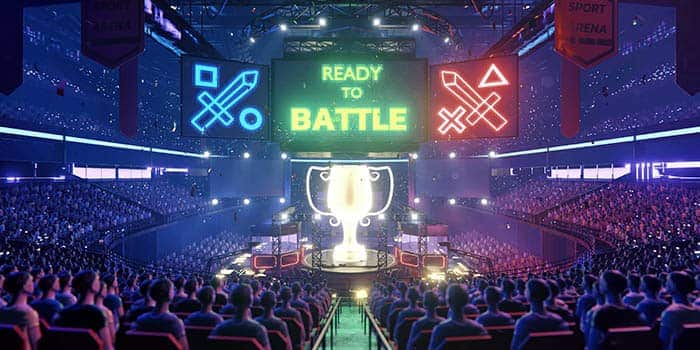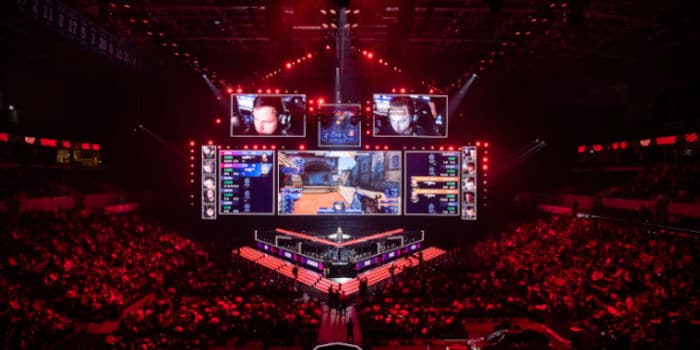- Casino
- By State
- Alabama
- Alaska
- Arizona
- Arkansas
- California
- Colorado
- Connecticut
- Delaware
- Georgia
- Florida
- Hawaii
- Idaho
- Illinois
- Indiana
- Iowa
- Kansas
- Kentucky
- Louisiana
- Maine
- Massachusetts
- Maryland
- Michigan
- Minnesota
- Mississippi
- Missouri
- Montana
- Nebraska
- Nevada
- New Hampshire
- New Jersey
- New Mexico
- New York
- North Carolina
- North Dakota
- Ohio
- Oklahoma
- Oregon
- Pennsylvania
- Rhode Island
- South Carolina
- South Dakota
- Tennessee
- Texas
- Utah
- Vermont
- Virginia
- Washington
- West Virginia
- Wisconsin
- Wyoming
- By State
- Slots
- Poker
- Sports
- Esports
German Visas in Esports to Create Fairer Competitions

With a new law passed, the German Federal Government and the German Esports Federation will allow players from outside the European Union to obtain visas and compete locally.
Germany to Introduce Esports Visas and Balance Official Events
Germany has announced dedicated visas for esports players, facilitating international travel and entering countries where competitive video gaming events are hosted. The visas will accommodate players from outside Europe and have been approved by the German Federal Government.
The measure will come into effect in the early spring of 2020. The government has set several criteria players will have to meet in order to qualify as esports players eligible for visas, including:
- Meet a specific salary requirement
- Be at least 16 years of age
- Have an official status as professional players
The German Esports Federation (ESBD) has also stepped in, saying it would help simplify the process and assist concerned parties to expedite the red tape. Furthermore, the move was first introduced in October, when the ESBD submitted a draft designed to ease the visa process.
Speaking at the time, the ESBD President, Hans Jagnow, acknowledged that in the past athletes hailing from EU countries have had an advantage. With the help of the new 90-day visas, however, all professional organizations can get an equal footing participating in local competitions.
In Germany, a dedicated esports visa was introduced today: as of spring 2020, professional esports athletes from non-EU countries will be subject to an easy procedure for a permanent residency in the term of their contracts.
— ESBD – eSport-Bund Deutschland (@ESBD_Verband) December 20, 2019
More information: https://t.co/hiL1Y8TApL pic.twitter.com/3KC8XI8dJT
At the time, Jagnow also considered the looming political rift between the European Union and the United Kingdom. Introducing visas early would help stave off most negative consequences pertaining to the free movement of people, and specifically esports athletes.
Jagnow was equally excited at the prospect of introducing visas as it could serve as the basis of liberalizing esports freedom of movement and serve as a model for other countries where esports are popular.
Visa Issues in Esports Continue
Visa issues have been common in specific countries, and especially Malaysia and China, although North America and Europe have also had their fair share of challenges. Danil “Diamondprox” Reshetnikov had to skip the EU LCS in 2016 along with Edward “Edward” Abgaryan.
The debate about esports visas has been a fairly prominent one. Forbes rhetorically asked whether esports players counted as athletes. Yet, the issue has never been with the specific term, but rather with the privileges granting an athletic status meant.
For many players, that’s an opportunity to get eased visa application process and participate in more events globally. Interestingly, the German Olympic Federation (DOSB) has repeatedly said that esports doesn’t qualify as sports.
Despite the hardline stance of DOSB President Alfons Hörmann, approval from a sports body for visa issues would indeed bring more balance to the current state of esports.
Lack of freer rules of travel for esports players is upsetting events and also messing with the esports betting industry built around competitions.
More Articles




